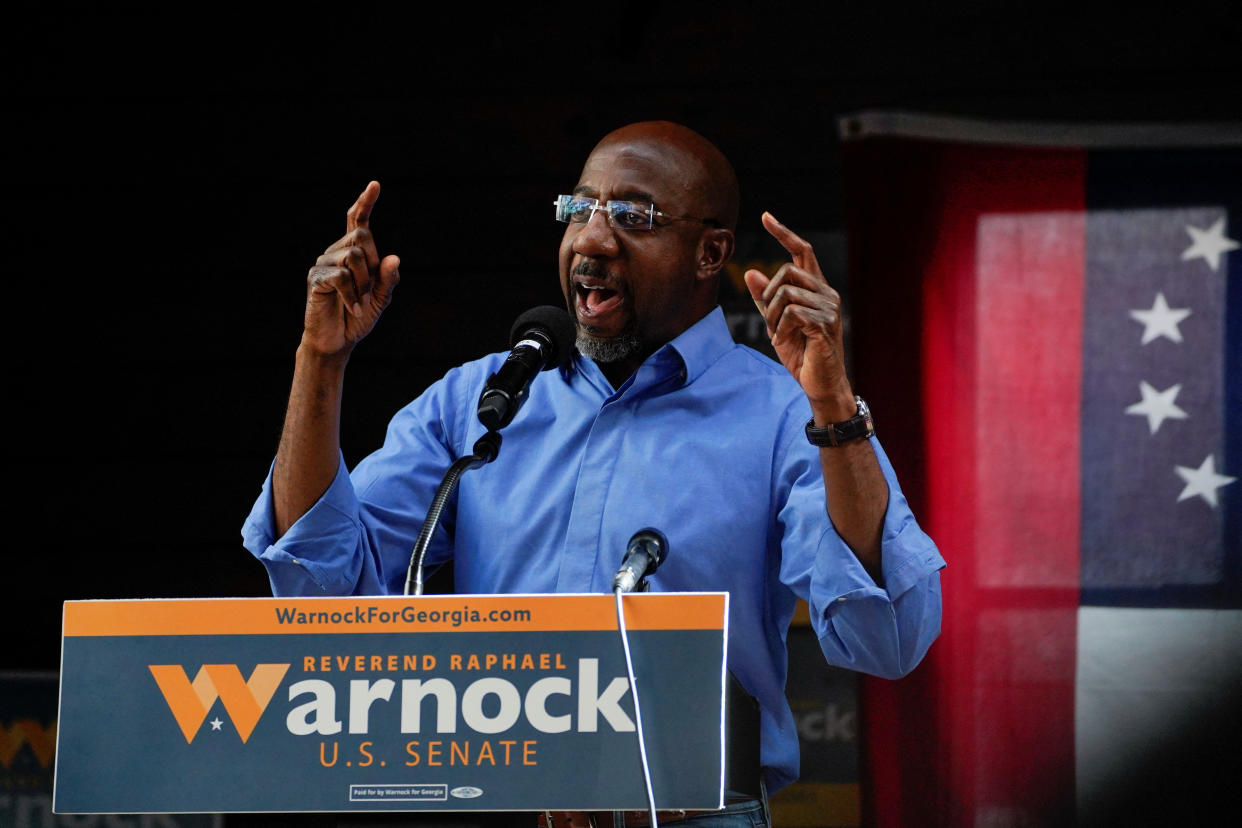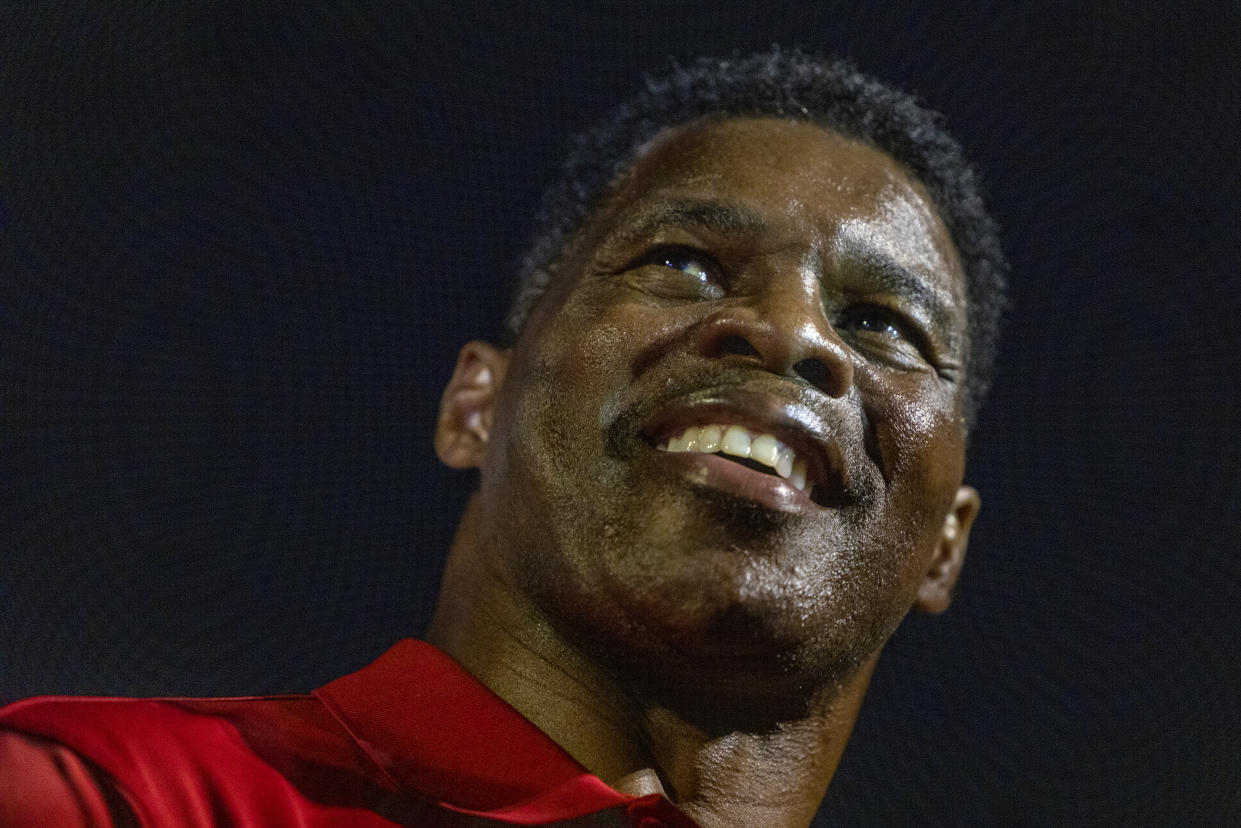Crucial Georgia Senate race between Warnock, Walker heads to December runoff
The race for Georgia’s pivotal U.S. Senate seat between Sen. Raphael Warnock, the Democratic incumbent, and his Republican challenger, Herschel Walker, is heading to a runoff election, according to media outlets.
Under Georgia law, a candidate must gain a majority of the vote to win. Neither Walker nor Warnock is expected to secure 50% of the vote.
<<< 2022 Georgia Senate Midterm Elections: Latest Updates and Results >>>
Warnock, a Baptist minister, was elected to the Senate in a January 2021 runoff, becoming the state’s first Black senator in the process. His runoff with Walker, a Georgia college football hero, will be held Dec. 6.
Most polls had the two candidates in a dead heat, despite a flurry of reports alleging that Walker, a staunch anti-abortion advocate, paid for a former girlfriend to undergo the procedure in 2009. Then another woman claimed he made her get an abortion during a years-long affair in the early 1990s. In both instances, Walker denied he had ever paid for a woman to get an abortion.

The race was, from the outset, one of the most high-profile in the country. Warnock often painted Walker as unfit and unqualified to represent the state, taking jabs at his opponent’s intelligence, his rigid anti-abortion stance and the long list of allegations of abuse leveled against him.
“You actually have to know stuff to do this job,” Warnock said at a rally in late October featuring former President Barack Obama and the Democratic gubernatorial nominee, Stacey Abrams.
Walker, meanwhile, claimed Warnock was running a “nasty, dishonest campaign.” “Warnock’s a preacher who doesn't tell the truth,” he said in one ad. “He doesn't even believe in redemption.”
Warnock, 53, grew up in the Kayton Homes public housing complex in Savannah, Ga. He went on to attend Morehouse College, an HBCU located in Atlanta, before earning his PhD from the Union Theological Seminary.
In 2005, he was appointed to the role of senior pastor of Ebenezer Baptist Church, where Martin Luther King Jr. once served as an associate minister. He continues to preach there to this day.
“The influences [Warnock] got at Morehouse are the same influences that came to bear on Martin Luther King,” Andrew Young, former Atlanta mayor and U.S. congressman, told New York magazine.

Walker, who was born in 1962, became a star player for the University of Georgia Bulldogs, helping them win a national championship in 1980. The team had been integrated for less than a decade when he came aboard. Two years later he won the Heisman Trophy. When he left the school, it retired his number.
He went on to play in the National Football League for four different teams over 11 seasons, before retiring from the game in 1997. He also opened several businesses, the most successful being Renaissance Man Food Services. Before this Senate run, Walker had only dabbled in politics, sparingly giving endorsements through the years based on his celebrity status throughout the state.
The race marked the first time that two Black candidates from opposing parties had competed for a Senate seat in Georgia. Both men had grown up poor and had roots in the state going back generations. Both were wildly successful in their chosen fields. But on the campaign trail, Walker ran as a right-wing Republican closely aligned with former President Donald Trump, while Warnock portrayed himself as a moderate who was broadly supportive of President Biden’s agenda.
Warnock’s 2021 runoff victory may be hard to replicate. Following Trump’s defeat in 2020, the then president undermined Republicans’ faith in the legitimacy of elections both nationwide and in Georgia specifically.
Trump had lost the Peach State by a narrow margin and pressed Gov. Brian Kemp and Secretary of State Brad Raffensperger, both Republicans, to throw out the results. When they refused, Trump tacitly encouraged Republicans to sit out the runoffs, helping both Warnock and his fellow Democrat, Jon Ossoff, win seats in the Senate.
Georgia’s runoff system was put in place in the 1960s as a way to lower the odds of Black candidates' winning office during the civil rights era. But regardless of the outcome on Dec. 6, Georgia will be electing a Black man to the U.S. Senate for the second time in the state’s history.
Cover thumbnail photo illustration: Yahoo News; photos: Michael M. Santiago/Getty Images, Seth Herald/AFP via Getty Images

